Antrim and Newtownabbey
DOMESTIC AND SEXUAL ABUSE COMMUNITY TOOLKIT
RECOGNISE RESPOND REFER

Introduction
The Domestic and Sexual Abuse Strategy (2024-2031) launched by the Department of Health (DoH) and Department of Justice (DoJ) in September 2024 with the vision that Northern Ireland is a place where:
• Domestic and/or sexual abuse is not tolerated, and everyone can be safe and free from fear;
• Domestic and/or sexual abuse is everyone’s business, where partnership work and collaborative approaches create lasting change across our communities and provide hope;
• The voice of victims, including children and young people, is valued and central to decision making.
The strategies have been designed to directly interface with each other to create a society free from domestic and sexual abuse in all its forms and to ensure that both female and male victims are supported and able to engage with professional experts at the earliest opportunity.
In September 2022, the Police Service of Northern Ireland (PSNI) launched the first Tackling Violence against Women and Girls (VAWG) Action Plan using the then national framework for delivery. This laid out actions policing committed to take to build trust and confidence, relentlessly pursue perpetrators and create safer spaces.
“Between 2019 and 2024, 30 women and girls across Northern Ireland were tragically killed by men. This is unacceptable and we intend to adopt the new national framework to align our response to this with terrorism and serious and organised crime.”
For more information about the VAWG Action Plan.

The Ending Violence Against Women and Girls (EVAWG) Strategic Framework (2024-2031) was launched by The Executive Office (TEO) in September 2024 with a vision of:
“A changed society where women and girls are free from all forms of gender-based violence, abuse, and harm, including the attitudes, systems and structural inequalities that cause them.”
Aims and Objectives of the Community Toolkit
Aim:
This Toolkit has been produced by Antrim and Newtownabbey PCSP and PSNI as a community resource. To address Domestic and Sexual Abuse within our society.
To provide a comprehensive, practical and accessible resource that helps community focused individuals and organisations to recognise the signs of domestic and sexual abuse, respond appropriately and refer individuals to the necessary support and services.
Objectives:
1. Raise Awareness of the signs, patterns and impact of domestic and sexual abuse;
2. Improve identification of the signs of domestic and sexual abuse early, even when victims may not openly disclose;
3. Ensure a safe and supportive response – by providing guidelines on how to respond to disclosures in a sensitive, nonjudgmental and supportive manner, whilst ensuring confidentiality;
4. Facilitate access to resources through effective signposting and referral mechanisms;
“No one should live their life in constant fear, walking on eggshells and isolated from family and friends.”
5. Empower communities to play their part in tackling domestic and sexual abuse through early intervention to create a safer and more equal society;
6. Promote prevention and advocacy in communities to not only address the immediate needs of victims but also to create a long-term culture and systemic changes that reduce the prevalence of domestic and sexual abuse.
“There is something that all of us can do”

RECOGNISE RESPOND REFER THE SIGNS WITH EMPATHY TO THE RIGHT SUPPORT
The 3’Rs
Recognise
By recognising the problem, particularly at an early stage, can help to ‘break the silence’ about domestic abuse in our community which may encourage more people experiencing abuse to speak up and seek support.
Respond
Community will be able to respond to any disclosures in a safe, compassionate, nonjudgemental and practical manner.
Refer
Community will be able to signpost people to professional support services to get the expert guidance, advice and support they need.
RECOGNISE
RESPOND
REFER


Recognise What is Domestic Violence and Abuse?
Domestic or sexual abuse involves the abuse of power and control by one person over another, within intimate relationships (current of former) or between family members (including child to parent abuse).
It can be experienced by anyone and typically escalates in frequency and severity over time. Abuse can have a detrimental and long-term impact on an individual and presents a clear violation of their human rights.
Within this strategy it is defined as:
“Threatening, controlling, coercive behaviour, violence or abuse (psychological, virtual, physical, verbal, sexual, financial or emotional) inflicted on anyone (irrespective of age, ethnicity, religion, gender, gender identity, sexual orientation or any form of disability) by a current or former intimate partner or family member.”

The DoH and the DoJ have developed a new strategy for addressing domestic and sexual abuse in Northern Ireland: Domestic and Sexual Abuse Strategy 2024 – 2031.
View the Domestic and Sexual Abuse Strategy 2024 – 2031.


What is Ending Violence Against Women and Girls (EVAWG)?
Violence against women and girls is a systemic and deep-rooted problem in our society. It is a problem that is hidden in plain sight and affects the lives of women and girls, wherever they learn, live or work. EVAWG addresses the whole range of gender-based violence, abuse and harm which is disproportionately experienced by women and girls, and which is rooted in gender inequality.
For more information about EVAWG.
Power to Change
The PSNI, along with TEO and DoJ, launched the "Power to Change" campaign in January 2025. This campaign is aimed at urging men and boys to take responsibility for their actions and challenge behaviours that contribute to gender-based violence. The campaign focuses on two key elements: promoting individual accountability and empowering men and the community to intervene safely in situations of inappropriate behaviour.
For more information about the Power to Change campaign.
The emerging evidence and lived experience of women and girls presents a disturbing picture of this wide spectrum of violence, abuse and harm that women and girls disproportionately experience on a daily basis.
This is illustrated by the following statistics taken from various recent surveys and research carried out by Queen’s University, Ulster University, the Young Life and Times Survey, the Trades Union Congress and the PSNI:
75%
of girls aged 16 surveyed experienced street harassment at least once in their lifetime.
73%
of girls and young women surveyed aged between 12 to 17 years of age, reported having experienced one or more forms of gender-based violence
98%
of adult women surveyed said that they had experienced at least one form of gender-based violence or abuse in their lifetime.
What Abuse Can Look Like
Domestic abuse can take many forms which may often involve physical violence. However in many cases domestic abuse will not involve physical violence but may involve a wide range of nonphysical abusive behaviour including what is often referred to as coercive control. Coercive control is controlling behaviour intended to increase dependency on an abuser.
Coercive control can include:
• Isolating you;
• Monitoring what you do;
• Denying you freedom;
• Gaslighting you;
• Controlling your finances;
• Making you live by their rules;
• Regulating your sexual relationship;
• Blackmailing you.
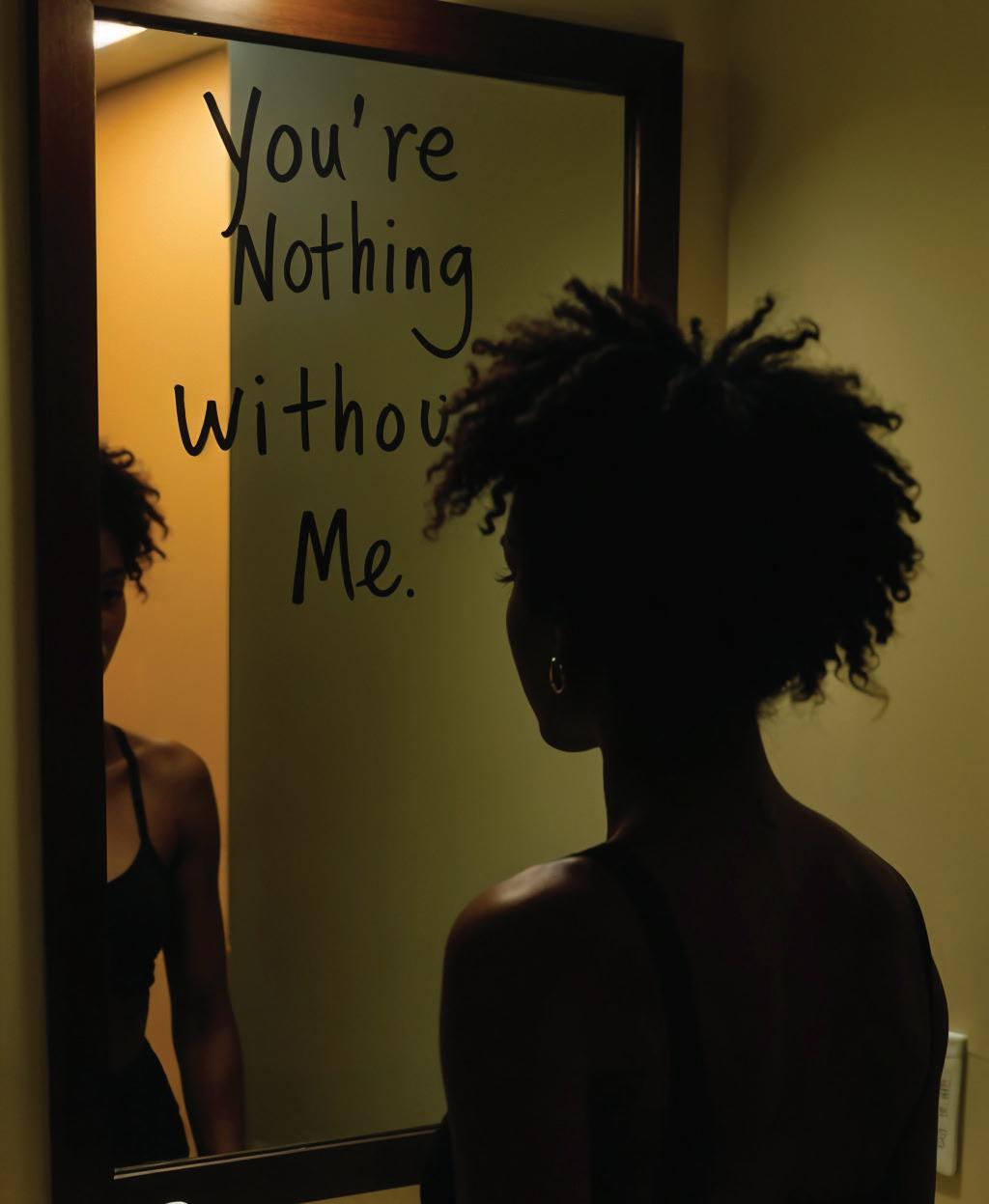
Domestic abuse can take many forms. Abuse may include, but is not limited to:
Physical - slapping, pushing, kicking, stabbing, damage to property, female genital mutilation, attempted murder or murder;
Sexual - any non-consensual sexual activity including rape, sexual assault, coercive sexual activity, unwanted sexual touch, indecent exposure, refusing safer sex or removing contraception without consent;
Coercive control - controlling whom you see or where you go, what you wear or what you do, stalking, imprisonment, forced marriage;
Stalking/Harassment – stalking and Harassment is when someone repeatedly behaves in a way that makes you feel scared, distressed or threatened. There are different types of stalking and harassment and anyone can be a victim. Stalking and harassment are now offences under the Protection from Stalking Act NI 2022.
Emotional/Psychological - intimidation, social isolation, verbal abuse, humiliation, constant criticism, enforced trivial routines;
Economic/Financial - stealing, depriving or taking control of money, running up debts, withholding bank cards;
Honour-based - relating to alleged or perceived breaches of the family and/or community’s code of behaviour;
Virtual/Technology-facilitated - use of technology to coerce, stalk or harass another person, monitoring of social media profiles or personal devices, sharing intimate photos without consent or using GPS trackers or spyware.
Some types of abuse can result in a higher risk of serious injury or a domestic homicide. If you have any concerns you should seek professional expert help and support.
Stalking
This is an intrusive course of conduct which can affect victims over a period of time. Stalking perpetrators are often known to the victim and in many cases are ex-intimate partners. A thematic analysis of Domestic Homicide Reviews found evidence of behavioural and psychological indicators of stalking between the perpetrator and the victim in the timeframe preceding a domestic homicide. Many research studies also suggest a link between stalking and serious violence and homicide.

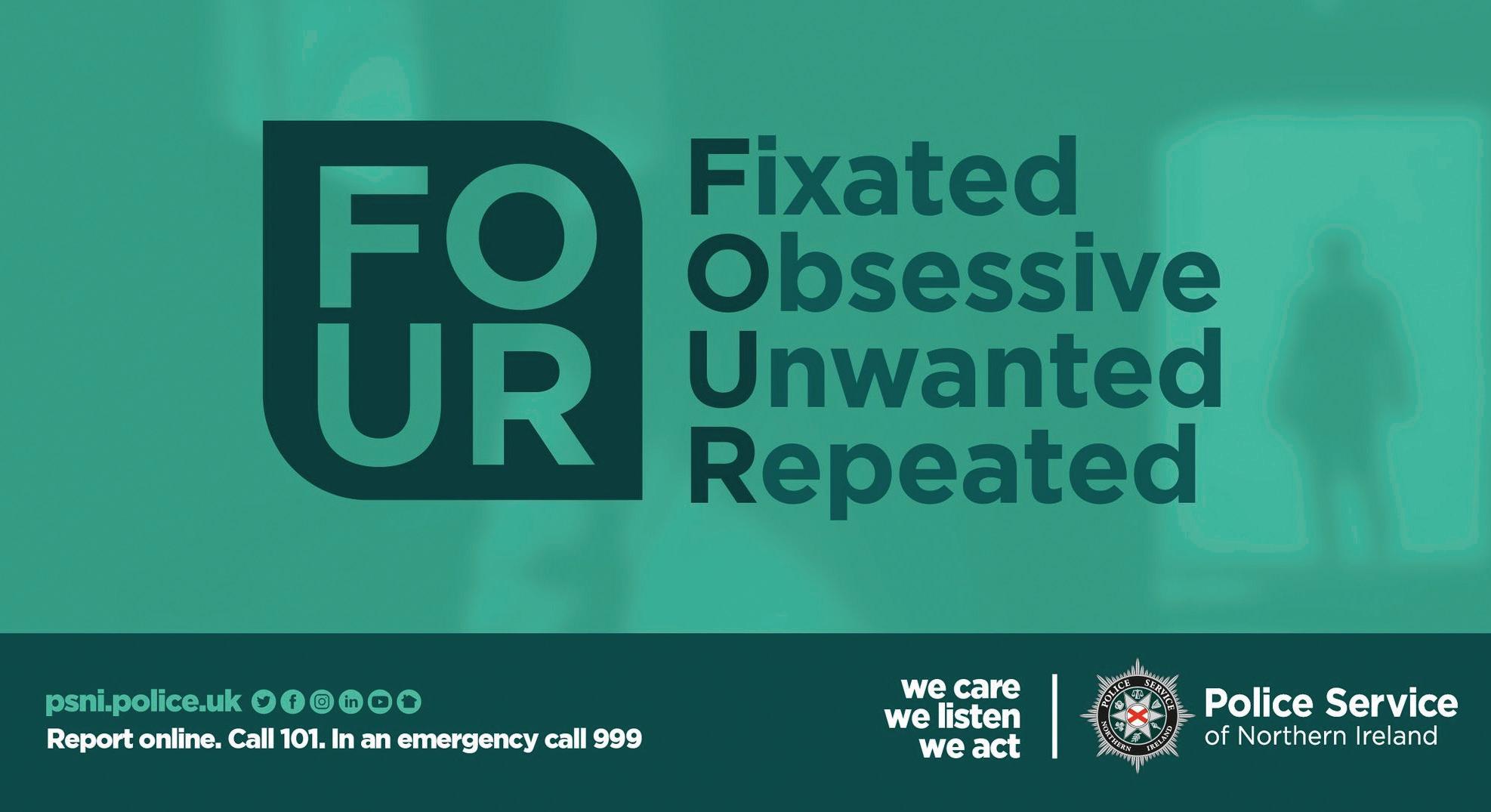
“I was mentally tortured by this man, there was no escape from him. When I blocked him, he found another way to contact me online. He was everywhere. I don’t think enough people understand how this crime affects victims, knowing someone is that obsessed and fixated on you, a person that could be capable of anything, it’s absolutely terrifying.”
For more information about Stalking visit the PSNI website.
Coercive Control
In a recent rapid evidence review (September 2024) published by PSNI College UK, coercive control is the MOST common form of abuse experienced by the victim prior to a homicide with clear evidence of the perpetrator being controlling within the relationship in almost two thirds of cases. Furthermore in over two thirds of cases the victim had ended or intended to end the relationship.
Non-Fatal Strangulation
This is now a standalone criminal offence in Northern Ireland since June 2023. There has been 1,233 arrests for NFS since its implementation, 94% of people arrested were male Studies have shown that victims of domestic abuse are eight times more likely to be murdered by their partner if there is non-fatal strangulation beforehand or as part of the abuse.
Non-fatal strangulation includes:
• Using your hands or a ligature like a scarf or belt
• Chokeholds or headlocks
• Hanging
• Drowning
• Smothering

Non-Fatal Strangulation Arrests and Charges Since 26 June 2023
1233
Why Does Abuse Happen?
Domestic abuse is…
• An abuse of power and control;
• A desire for dominance and ownership;
• A belief of rights of sexual entitlement. Domestic abuse is NOT…
• The fault of the person being abused;
• Caused by alcohol or drugs;
• A mental illness or caused by other mental health conditions;
• Just an anger management issue;
• Just against women;
• Just between a romantic couple;
• Something you can leave at home.
Why don’t they just leave?
• Leaving a relationship does not always guarantee the abuse will stop;
• If a person is trying to leave, their perpetrator may become increasingly violent and high risk;
• The person may have caring responsibilities for their perpetrator;
• There may be barriers to leaving such as finances, accommodation, legal concerns, religion, immigration status or children;
• The perpetrator may have stripped the person of their self-esteem and independence, reducing their means of escape.
Abusive relationships are extremely complex situations, and it takes a lot of courage to leave. Abuse is about POWER and CONTROL. When a person decides to leave their abusive relationship, they threaten the power and control their perpetrator has established over them. This often causes the perpetrator to escalate the abuse.
As a result, leaving an abusive relationship and the period following this (up to 18 months) is often the MOST DANGEROUS period of time for victims, but in particular women.
Who Does Abuse Affect?
Domestic or sexual abuse can affect anyone, regardless of sex, gender identity, sexual orientation, age, disability, ethnicity, immigration status, religion, community background, social or marital status, or occupation. Similarly, anyone can be a perpetrator of abuse.
Abuse can also have a negative effect on the wellbeing of those who witness or are aware of it. For example, friends, family members or colleagues of someone who is being abused may feel heightened anxiety, fear or stress.
Women
Women’s Aid report that 1 in 4 women will experience domestic abuse in their lifetime. Also, PSNI statistics reveal that women are more likely to be victims of domestic homicide.
Men
Men’s Advisory Project NI (MAPNI) reports that 1 in 3 victims of domestic abuse will be male. A study by MAPNI also revealed that men are much less likely than women to disclose or even accept that they are being abused.
Age
Domestic abuse can affect or be perpetrated by any age group, including children and older people. Crime Survey for England and Wales reports that 9% of abuse victims are aged 55+. NSPCC reports that 1 in 5 children and young people have been exposed to domestic abuse and exposure to abuse is classified as child abuse.
LGBTQ+
Galop report that 1 in 3 LGBTQ+ people have experienced domestic abuse from a family member. They also face unique barriers to seeking support such as not wanting to ‘out’ themselves or lack of specialist support
Disability
Disability Action report that deaf and disabled people are at a greater risk of domestic and sexual violence than people who are not disabled. They may also face unique barriers to seeking support or escaping abuse such as communication barriers or financial dependency.
Ethnicity
Data collected by the ONS shows that in 2018/19, rates of domestic abuse amongst black and minority ethnic communities were higher than their white counterparts. Honourbased abuse is also more prevalent in these communities.
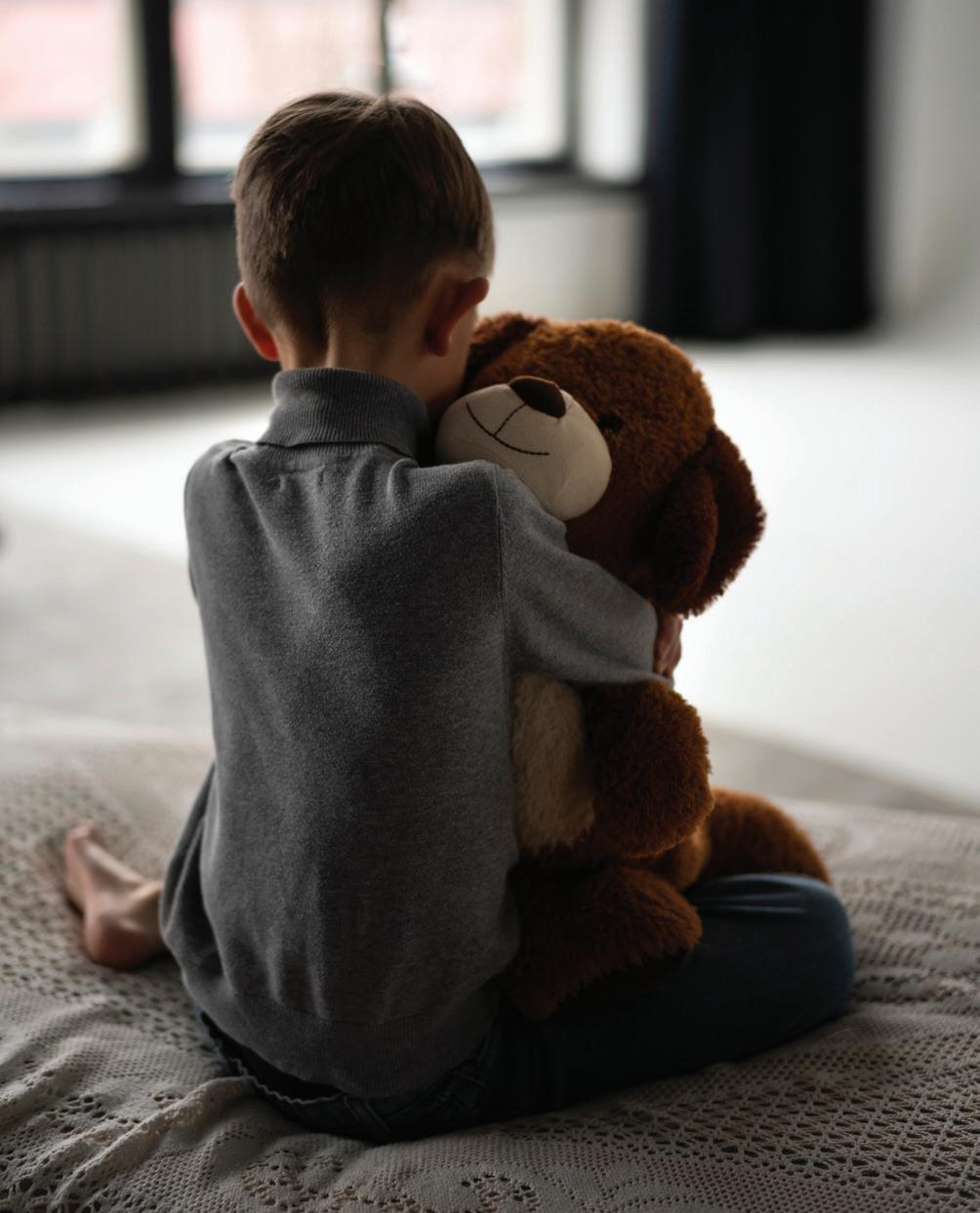
PSNI Statistics Covering the Period 1st April 2024 to 31st March 2025:
29,751
domestic abuse incidents recorded
1958
incidents recorded in Antrim and Newtownabbey PSNI District
747 controlling or coercive behaviour offences
6 domestic homicides of women
16minutes on average between reported domestic abuse incidents
Signs of Domestic Abuse
• Unexplained injuries (bruises, burns, cuts);
• Frequent “accidents”;
• Wearing long sleeves or sunglasses indoors (to hide injuries);
• Sudden changes in personality or behavior (withdrawn, anxious, fearful);
• Low self-esteem or self-blame;
• Signs of depression or anxiety;
• Avoidance of social situations or isolation from friends/family;
• Seeming overly worried about pleasing their partner;
• Constantly checking in with a partner or asking for permission to do things;
• Seeming afraid of their partner or reluctant to talk about them;
• Partner is overly jealous or possessive;
• Partner belittles, insults or humiliates them (in public or private);
• Being criticised constantly or made to feel worthless;
• Has no access to money or financial decisions;
• Needs to ask their partner for money or spending approval;
• Partner withholds necessities like food, medicine or transportation;
• Being forced or pressured into sex or sexual acts;
• Partner monitors, controls or limits their calls, texts, emails, or social media.
Remember!
This list is not exhaustive and every individual is different - some people experiencing abuse may display no signs or changes in their behaviour may be difficult to identify.
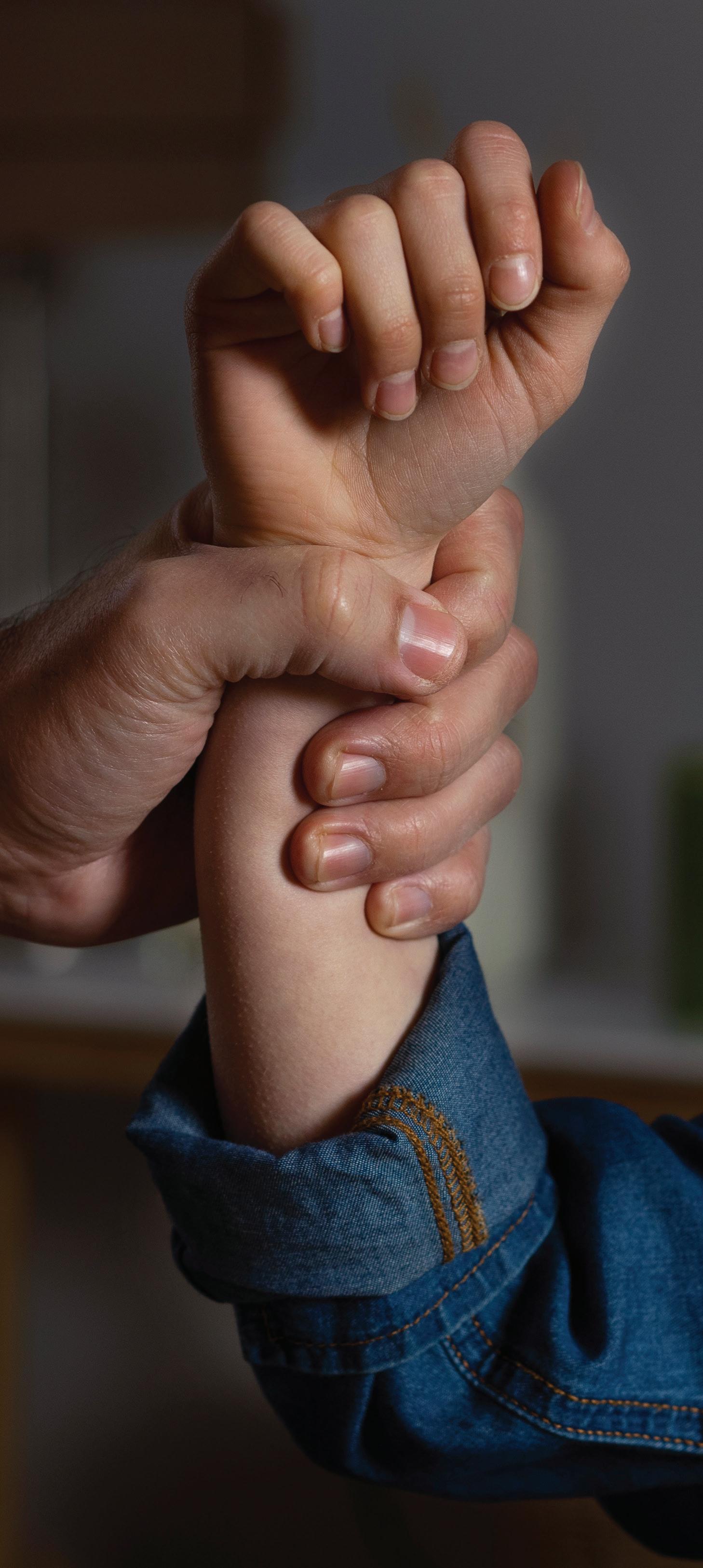
Pregnancy, holiday periods and rural address are factors which may cause an increased risk of domestic violence. Therefore, ensure a safe form of communication is maintained and agree a suitable frequency of contact. Signpost them to a professional expert such as PSNI, Women’s Aid, MAPNI.
Pregnancy
Pregnancy can be a trigger that starts domestic abuse or existing abuse may become more frequent or severe. Around 30% of domestic abuse begins during pregnancy, while 40–60% of women experiencing domestic abuse are abused during pregnancy.
Holiday Periods
One in six people experiencing abuse believe they’re more likely to suffer emotional or physical abuse from their partner over the Christmas period. Victims may be more vulnerable to violence due to prolonged or increased contact with family and friends, alcohol consumption, increased risky behaviour due to vacationing, financial stress or unique challenges during the holiday period.

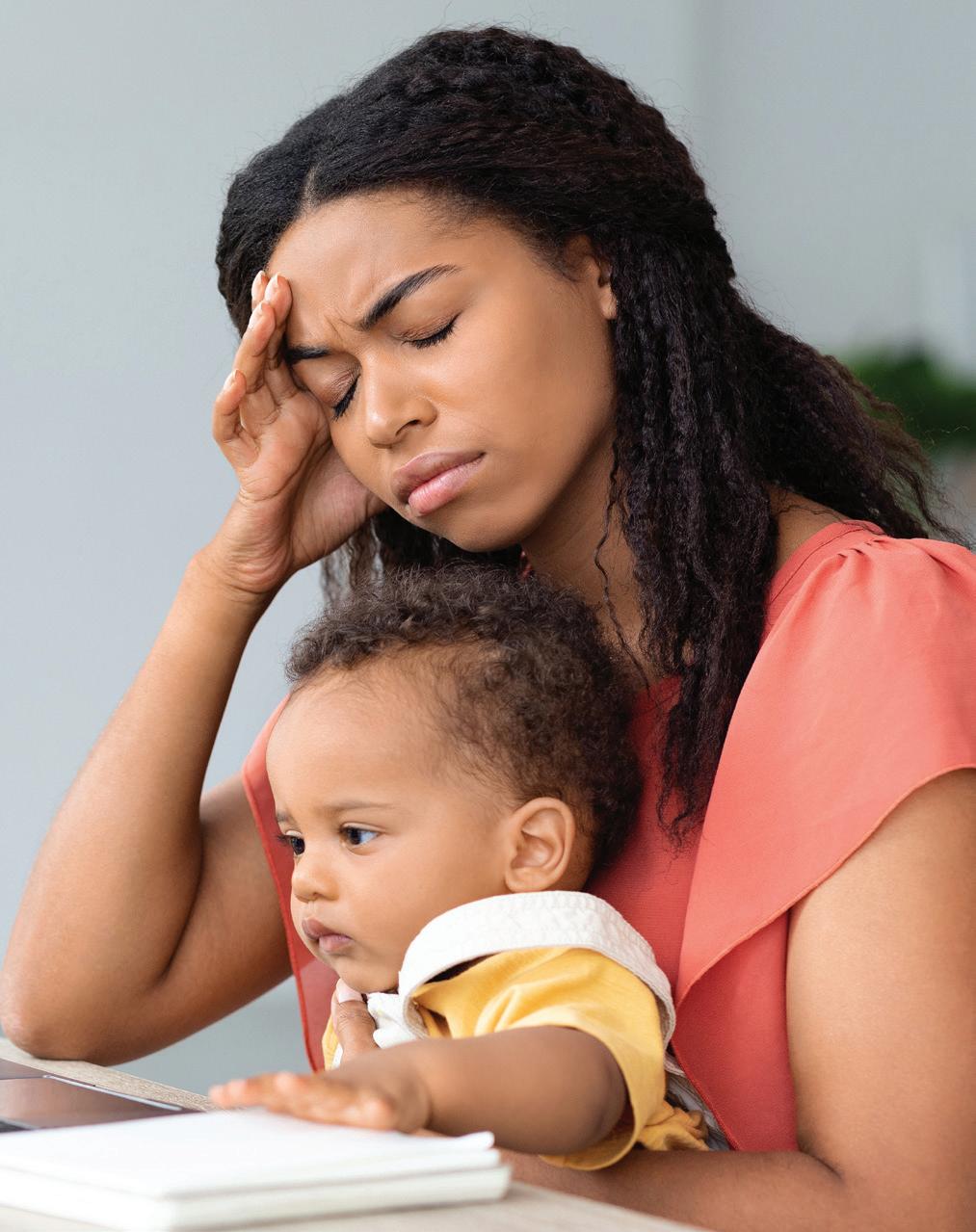

Rural Address
Abuse perpetrated in rural communities can last, on average, 25% longer than in urban areas. Rural communities do not have the same access to support services. People experiencing abuse who live in rural communities may be extremely isolated at home and rely heavily on their workplace as a safe space.
Section 2 Respond Responding to Domestic Abuse
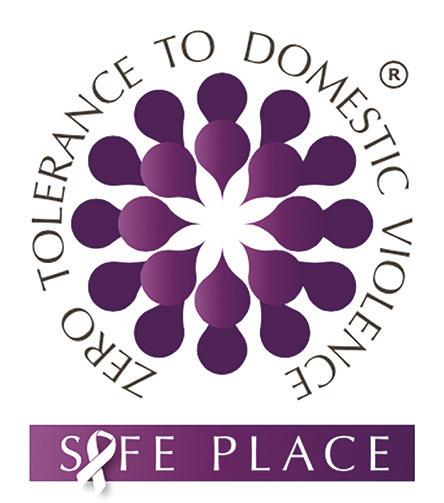
Onus’ Safe Place Initiative
Safe Place Initiative is a simple way for organisations to provide information and signposting for anyone affected by domestic abuse. It asks everyone to ‘Play Your Part’ in ending domestic abuse in all it’s forms.
What You Can Do?
• Support the Safe Place Pledge to never commit, condone or remain silent about domestic abuse.
• Acknowledge domestic abuse is a problem that impacts on all of us as a society, be prepared to play your part in supporting those affected and sending a clear message to perpetrators that domestic abuse is intolerable.
• Provide a Safe Place for ANYONE affected by domestic abuse to confidentially access information.
Onus’ Community Safe Place Advocate
Community Safe Place Advocate initiative is an effective way for any individual who would like to make a difference in their local area and work towards a safer community, free from domestic abuse. By attending the Community Safe Place Advocate workshop you will meet other advocates and be supported to make a plan of action towards achieving the Safe Community Award in your area.



“Everyone should have a Safe Place from domestic abuse”
How Can You Support Victims?
Disclosures - Do’s and Don’ts
Do’s
• Be compassionate, non-judgemental, practical, supportive and discrete;
• Prioritise safety and wellbeing;
• Allocate some private time and space to listen;
• Signpost to specialist support and advice;
• Use discretion and respect confidentiality;
• Seek support for yourself also if needed.
Don’ts
• Seek proof of abuse;
• Contact the abuser;
• Force the person to talk;
• Compel a victim to accept support;
• Assume personal responsibility;
• Tell anyone else without their consent (except in child protection or risk to life situation).
White Ribbon NI
White Ribbon is a global movement to end male violence against women. White Ribbon in Northern Ireland began as a campaign within Women’s Aid ABCLN, encouraging groups and Individuals to take action by:
• Signing the White Ribbon Charter;
• Wearing the White Ribbon pin;
• Making their personal pledge never to commit condone or remain silent about violence against women and girls.
LISTEN - LEARN - LEAD
By making the White Ribbon NI pledge to never commit, condone or stay silent about violence against women and girls, on _(date). (Organisation)_ have committed to take the steps necessary to make our society a safer place for women.
The pledge is an important first step and our voice is strengthened by all who choose to make it.
After making the pledge organisations commit to making lasting change through their staff, their policies and their day-to-day work, as well as their role within the communities in which they are based.
The template Listen, Learn, Lead clearly sets out the criteria your organisation must meet to successfully achieve White Ribbon NI accreditation.
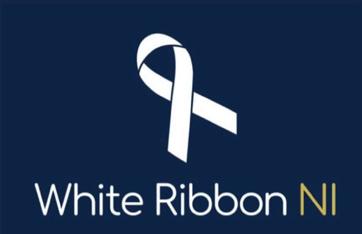
What to Do in An Emergency Situation
Silent Solution
If you are unable to speak, you can still call 999 from a mobile then press 55 to be put through to the PSNI. The PSNI call handler will attempt to communicate with you by asking simple yes or no questions, they may ask you to cough or tap the keys on your phone to respond.
The Rowan Sexual Assault Centre
If you have been raped or sexually assaulted and don’t wish to contact the PSNI, you can contact The Rowan directly on 0800 3894424 for immediate support.
Relay UK – Relay Assistant or Emergency SMS
If you are deaf or have hearing loss, you can dial 18000 in an emergency and follow the relay assistant’s responses on the textphone screen. Alternatively, you can register for the emergency SMS service by texting REGISTER to 999.
999 BSL Emergency Video Relay Service
If you use British Sign Language, you can download the 999 BSL app on your phone. The app can connect you via video call to a BSL interpreter for emergency situations.


Steps to Take if You Are Experiencing Domestic Abuse
• Call the PSNI;
• Seek medical assistance;
• Take photos of any injuries;
• Contact a solicitor as soon as possible;
• Contact a professional expert such as: PSNI, Women’s Aid, MAPNI, or the Domestic and Sexual Abuse Helpline for Guidance. Details can be found on page 36.
Guidance on Reporting to PSNI
Domestic Abuse Report Form
PSNI are there to protect, help and support anybody who is suffering domestic abuse.
They have created a simple online form for you to report domestic abuse to them as an alternative to speaking on the phone.
The information you provide on the form will be dealt with in the same way as any other report of domestic abuse.
Online Safety
The form will take about 5 to 10 minutes to complete, so please make sure you’re safe to take that time to complete it.
Use the ‘Leave this site’ button if you need to. It will close the site and open the Google search engine, your form won’t be saved and won’t be sent to PSNI.
If you’re worried about someone seeing your web history, visit our covering your tracks online webpage.
What PSNI will Ask for:
• Your contact details including how you would prefer them to contact you;
• Details about what’s happened;
• Details about the person causing you harm.
Your report will go to their 24/7 contact centre and will be reviewed within a few hours at most.
They will get back to you in a maximum of 24 hours, or at the time and in the way that you’ve asked them to.
PSNI will not send you a receipt email as this could be a threat to your safety.

Safety Planning
Helping Someone to Saftey
Assess Immediate Safety
• Ask if they are in immediate danger or if their safety is at risk;
• If the person is in immediate danger, call emergency services (999);
• If the person is not ready to leave their situation, respect their decision but encourage them to consider their options.
Provide Information and Options
• Inform the individual about their rights, available support services and safety options so they can make informed choices – for example, contact specialist support agencies such as Women’s Aid or MAPNI who can provide practical and emotional support;
• Encourage them to make decisions at their own pace, providing information on safe housing, legal protection (e.g. restraining orders) and medical assistance;
• Agree a code word or action that if he/she says to you, or you see, you know they’re in danger and cannot access help alone;
• Get some support yourself. You have to be strong if you’re going to be able to help them. Most domestic abuse services are happy to help with any worries you may have or provide suggestions as to other actions you might take.
Ensure Confidentiality
• Respect the person’s privacy, but make it clear that, in certain cases, information may need to be shared for safety reasons;
• If you’re unsure about confidentiality, seek guidance from a domestic or sexual abuse support service.
Safety Planning for Victim
• Seek professional advice and support from local support and outreach organisations, domestic abuse services and helplines;
• Consider how agencies can make contact safely, e.g. through a work number or at a friend’s address;
• Consider where you can quickly and easily use a telephone and try to establish safe people to contact – memorise a list of numbers for use in an emergency, such as friends, PSNI or support organisations;
• Consider a signal (such as a codeword) with children, family, neighbours, friends or colleagues which will alert them to call PSNI if help is needed;
• Think through escape routes in advance, avoiding rooms with no exit or which may contain potential weapons (e.g. bathroom or kitchen) where possible;
• Try to put money aside for fares and other expenses;
• Seek and obtain medical help for any injuries ensuring that they are recorded and if possible photographed, as these may be used at a later date to support court cases or rehousing applications;
• Consider changing online passwords regularly, especially for social networking accounts – this may not be appropriate where the perpetrator regularly accesses your accounts as part of coercive control as it may escalate risk;
• Avoid the use of sat navs and be aware that the perpetrator may monitor your movements by checking the sat nav history if not deleted.
Digital Safety and Planning
Covering your Tracks Online
All of PSNI domestic abuse webpages have a ‘Quick Exit This Site’ red button at the right hand side. By clicking this button you close down any domestic abuse page immediately and this will be replaced by the browser’s homepage.
How to View and Delete your Browsing History
The PSNI domestic abuse webpages will close but will still appear in your internet browsing history. If you need to cover your tracks quickly when viewing these domestic abuse pages or any other webpages delete your browsing history.
For more information visit the PSNI’s website.

Remember!
Turn Off Location Tracking on Your Device.
Navigate to your device’s settings, then find the ‘Privacy and Security’ or ‘Location’ section and toggle off the location services or specific app permissions.
Location on Apps and Services
Consider apps you are using that may track or update your location. You will need to review the individual location settings in each app to set to ‘Off’ or ‘Never while using the App’.
Staying Safe Online
The PSNI also provide general guidance on keeping yourself and others safe online, as while the internet is a great way to learn, explore and connect with each other, it also presents opportunities to exploit vulnerabilities.

Keeping Children Safe Online – Tips for Parents and Guardians
Online Grooming – Understand what online grooming is and what to do if you are worried;
Sexting and the Law – Understand what sexting is, what the law says and how to access help and support;
Sextortion – Understand about this type of online blackmail and steps you can take to stay safe;
Up Skirting and Down Blousing – These are both specific criminal offences, understand how to report.
For more information about online saftey for young people.
Support in School –Operation Encompass
What is Operation Encompass?
Operation Encompass is a partnership between the PSNI, Safeguarding Board Northern Ireland (SBNI), the Education Authority (EA) and schools aimed at supporting children who witness domestic violence or abuse in the home.
How it Works
If PSNI attend a domestic abuse call and children are present, Operation Encompass allows the officers to pass on relevant information to the Safeguarding Team at the child’s school before 9am the following morning, so the right support can be put in place. The information shared by PSNI is treated in strict confidence.
Since the scheme was first set up in 2021 the PSNI have received over 39,000 referrals.

Keeping Safe on a Night Out –Ask for Angela
Who Can Ask for Angela?
Anyone who is feeling unsafe, vulnerable or threatened in public venues like bars and resteraunts can discreetly seek help by approaching venue staff and asking them for ‘Angela’. This code-phrase will indicate to staff that you require help and a trained member of staff will then look to support and assist you. This might be through reuniting you with a friend, seeing you to a taxi or by calling venue security and/or PSNI.
For further information on this initiative including details of local venues who have already received training and registered as part of the Northern Ireland ‘Ask for Angela’ Scheme. Please scan QR code.
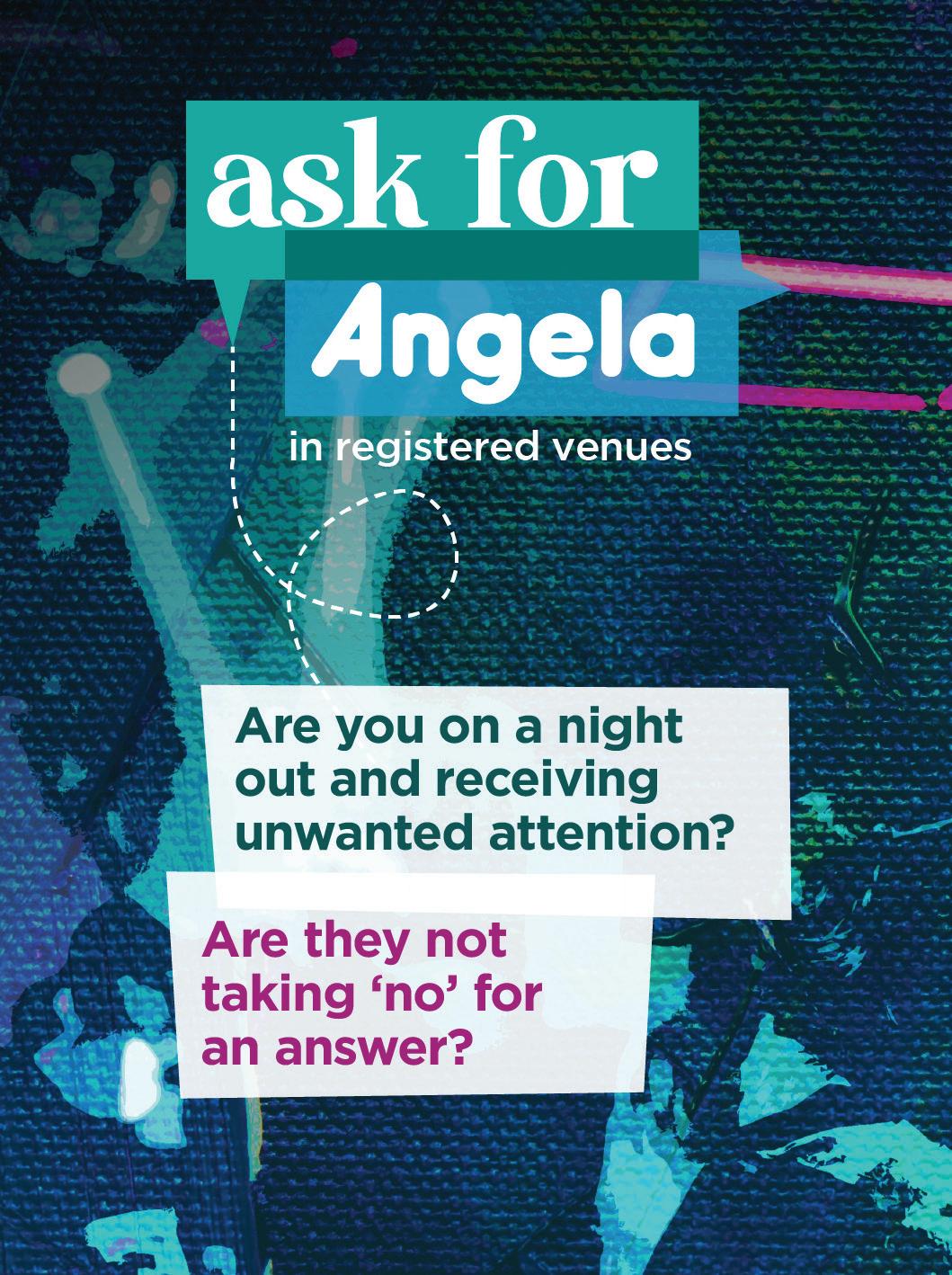
Remember!
The safety initiative ‘Ask for Angela’ is being rolled out to bars, clubs and other licensed businesses across Northern Ireland.
For more information about the Ask Angela Scheme.
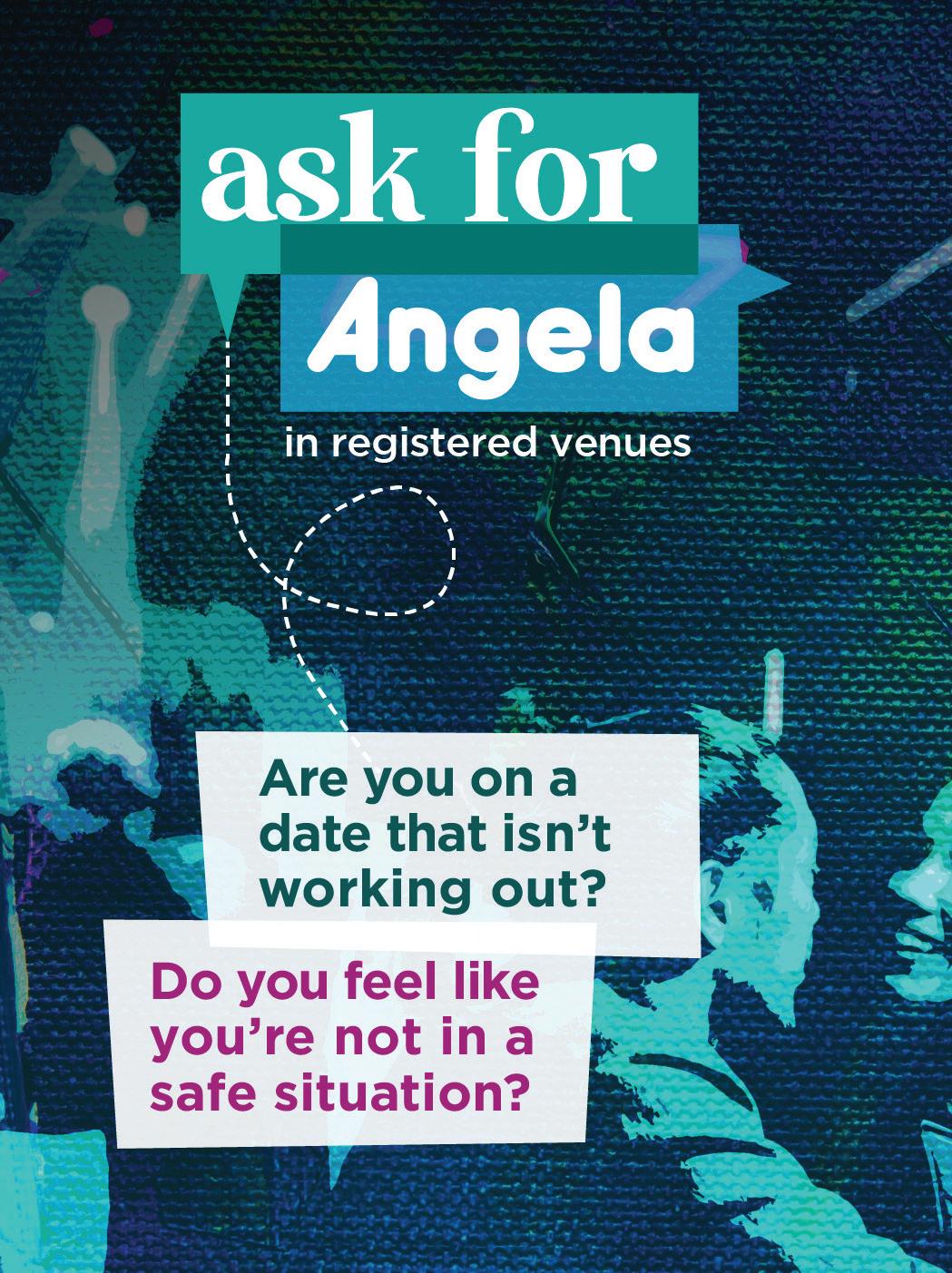

“Is Angela about tonight?”
Code for: I need your help.
Section 3
Refer How to Get Help
PSNI
PSNI are there to help anyone suffering domestic abuse and are committed to bringing offenders to justice. They work closely with other partner organisations to provide help, support and guidance to those in need.
For more information visit PSNI’s website.


The Domestic Abuse and Family Proceedings Act (Northern Ireland) 2021:
This Act provides protection for victims of domestic abuse and includes provisions for:
• Domestic Abuse Protection Orders (DAPOs);
• New criminal offences for domestic abuse, including coercive control;
• Recognition of children as victims when they witness abuse.
Sexual Offences (Northern
Ireland) Order 2008:
This legislation outlines various sexual offences, including rape, sexual assault and the protection of vulnerable persons.
Section 1 - Domestic Abuse offence (is an arrestable offence in its own right and likely to be referred to as ‘a section 1 DA offence’).
This is the behavioural aspect, more commonly referred to as ‘coercive control’ however the behaviour can take a number of forms.
Needs FOUR main conditions to be met:
• Course of behaviour (abusive behaviour, 2 or more linked occasions). Sporadic or random incidents weeks or months apart may still qualify depending on the nature of the incident. The key will be if a course of conduct is made out around particular behaviours or the intent. Similar to harassment, two separate days apart may not fall under this category if they are otherwise unrelated;
• Abusive behaviour – violence, threats or behaviour directed at the victim and has a ‘relevant’ effect on the victim (e.g., physiological impact/dependence/ isolation/coercion, subordination/ demeaning behaviours / forced lifestyle, generating a fear of the person self-harming or attempting to take their own life (this has the physiological impact) etc;
• Personally known to each other (in the domestic sense, the same definition applies (mother, father, son, daughter, brother, sister, grandparents whether directly or indirectly related, in-laws, or stepfamily), or if they have ever been intimate partners).
Personally known does NOT include friends, work colleagues, associates etc;
• Reasonable person test – would the behaviour or actions likely cause physical / physiological harm to that person? Is the behaviour deliberate or reckless. Harm does not have to be caused - only that it could be reasonably be seen that it could have this impact, irrespective if it actually does or not.
Aggravators - section 8, 9, 15 (these are not separate offences in their right)
• Section 8 - Accused partners/connected person was under 18 at the time of the offence;
• Section 9 - child aggravator. If a child (not the victim) is involved/present/used as part of the behaviours/sees or hears the behaviours between perpetrator and victim. We do not need to evidence they were impacted by the incident, simply their presence or the potential for them to see/hear is enough and application of the ‘reasonable person test’ that they could be affected similar to the above. Harm does not have to be caused, only the reasonable potential for it;
• Section 15 - the statutory aggravator (for all domestic linked offences). You do NOT need to demonstrate a course of behaviour for this one and it can be applied to any statutory criminal offence (AOABH, Common Assault, Criminal Damage, Mal Comms etc. if it is committed in a domestic context.) but it CANNOT be added to the section 1 DA offence (the coercive behaviour offence). A section 15 and the section 1DA offence carry a similar weight under this legislation so would be akin to two bites of the cherry, hence why they cannot be combined, but they can be used alongside each other where there are multiple offences.
What Can the PSNI and Criminal Justice System Do?

Legal Remedies
The Northern Ireland Court System Civil Court
A civil court deals with a wide range of disputes including family matters such as child arrangements, separation and protection orders where domestic violence is alleged. It is to a civil court that a victim applies for nonmolestation and occupation orders.
Criminal Court
A criminal court deals with criminal offences when it is alleged that someone has broken the law such as in a breach of a non-molestation order or criminal assaults, coercive control and threats of violence.
What Protection Does Civil Law Offer?
The Legislation
The Family Homes and Domestic Violence (Northern Ireland) Order 1998 is the legislative framework which allows victims of domestic violence/abuse to apply for protective civil orders.
Civil Orders
Non-Molestation Order
Is an order that a Judge can grant to stop or prevent a person from abusing, harassing, pestering, using or threatening to use violence against another person in any way.
Occupation Order
Is an order that a Judge can make to declare who has the right to occupy a property. An occupation order may be used as a complementary order to the non-molestation order or as a stand-alone order.
Emergency Order (Ex-Parte Orders)
Both a non-molestation order and an occupation order can be made by an exparte application without notice to the alleged perpetrator.
If there has been a recent incident (usually within seven days) of abuse a victim can make an emergency application to the court for either a non-molestation order or an occupation order or both.
Who Can Apply for Orders?
In general, a victim can apply for an order against someone who is a family member or has lived with them in a familial or intimate partner relationship.
What Does it Cost?
Everyone applying for a non-molestation order and or a non-molestation order combined with an occupation order is eligible for legal aid. A financial assessment for legal aid is carried out by the solicitor.
What Protection Does Criminal Law Offer?
The Legislation
The Domestic Abuse and Civil Proceedings Act (Northern Ireland) 2021 includes the Domestic Abuse Offence.
Domestic Abuse Offence
An offence has been committed if someone engages in a course of behaviour (at least 2 occasions) that is abusive to another person, who they have a personal connection with.
The course of behaviour is likely to cause physical or psychological harm and was committed either intentionally or with a recklessness as to whether harm is caused or not. Psychological harm includes fear, alarm and distress.
Personal Connection
Is defined as two people who have been or currently are:
• Married or in a civil partnership;
• Currently live or have lived together as if they were spouses;
• In an intimate personal relationship;
• Members of the same family.

Behaviour That is Considered Abusive
Abusive behaviour includes violent (both physical and sexual) or threatening behaviour.
Abusive behaviour includes actions that intend to make someone or their child:
• Dependent or subordinate;
• Feel isolated from family/friends.
• Feel that their day-to-day life is controlled;
• Deprived of their freedom;
• Feel frightened, humiliated, or degraded.
Child Aggravator
This applies if the victim was under 18 at the time of the offence. It also applies if a child saw, heard or was present during the offence.
Non-fatal Strangulation
Non-fatal strangulation has been made a specific offence in Northern Ireland as part of the Justice (Sexual Offences and Trafficking Victims) Act (Northern Ireland) 2022.
Signs to look for:
• Bruising, redness, swelling or visible marks around throat;
• Breathing difficulties;
• Neck pain;
• Hoarseness or voice changes;
• Memory loss or confusion;
• Incontinence;
• Drooping eyelid;
• Dizziness, light-headedness, or changes to vision;
• Headache not relieved by over counter medication.
The research shows the victims tend to be young adult females and that they are eight times more likely to be murdered by their partner if there had been non-fatal strangulation beforehand.
Stalking and Harassment
Stalking is dealt with by PSNI under the Protection from Stalking Act (Northern Ireland) 2022.
Stalking Protection Orders
Stalking Protection Orders are provided for within the Protection from Stalking Act (Northern Ireland) 2022 and work is ongoing to bring them into operation.
Once enacted if you are being stalked the PSNI can apply for a Stalking Protection Order (SPO) to a Magistrates Court, which lasts between two and five years.
These orders will be a key tool for PSNI, enabling them to intervene prior to any
conviction and disrupt stalking behaviours before they become entrenched or escalate in severity. They will assist with protecting victims when there is an immediate risk of harm.
Breach of this order is a criminal offence for which the perpetrator can be arrested and brought back before the courts.
Restraining Order
A restraining order can be issued by a court to protect the victim from conduct which amounts to harassment or will cause fear of violence. The court can make the order after conviction or acquittal of a criminal offence against the perpetrator. Breach of this order is a criminal offence for which the perpetrator can be arrested and brought back before the courts.
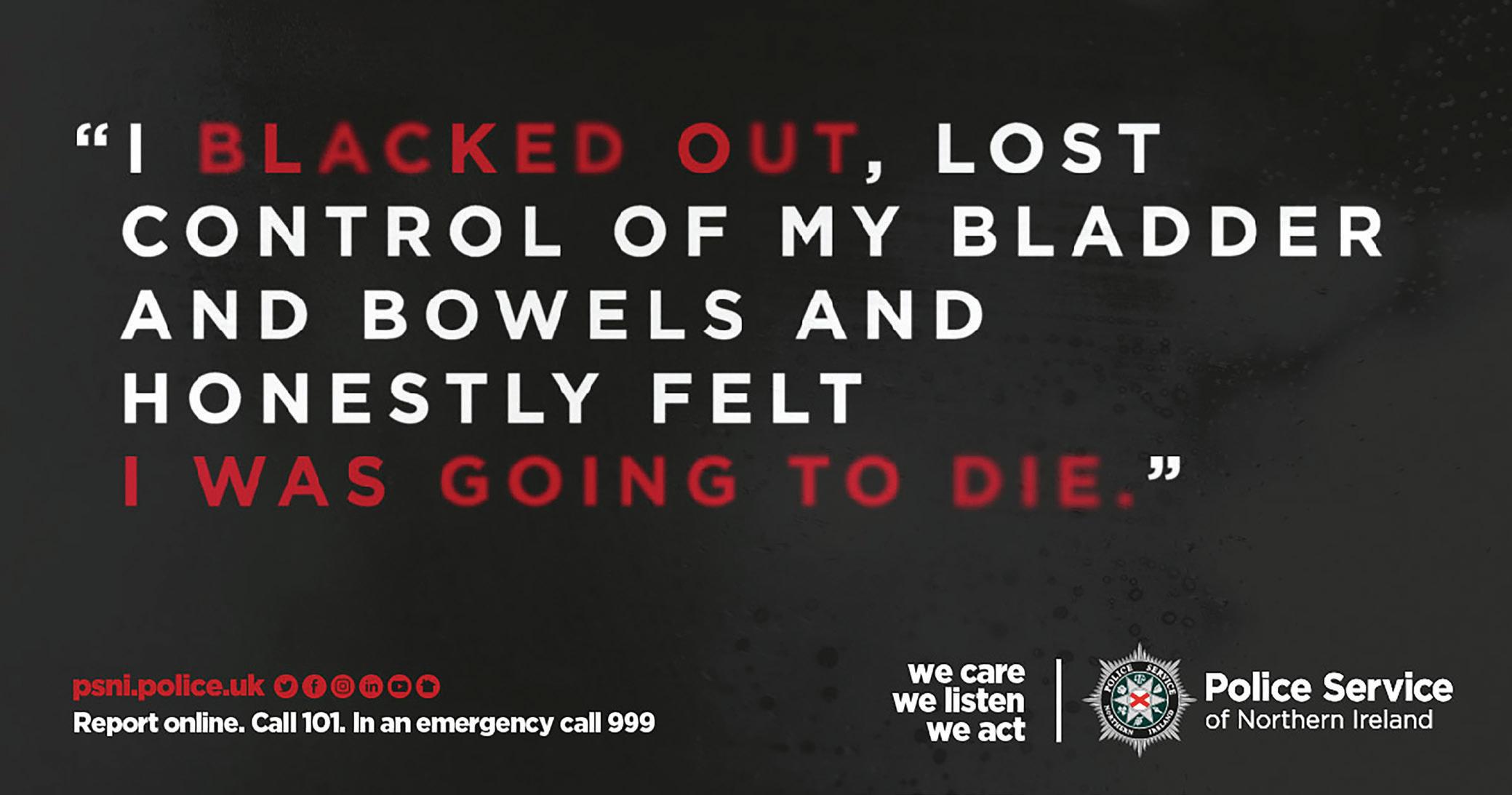

Other Civil Options
Civil Injunction
Under The Protection from Harassment (Northern IrelandI) Order 1997 and under the Court’s inherent jurisdiction, a civil injunction may be used when there are no familial relationships:
• A mandatory injunction is any order requiring a person to take a certain step;
• A prohibitory injunction is an order preventing a person from doing something.
There must be evidence of two separate incidents of harassment or physical violence or harm to seek this remedy.
Undertaking
An undertaking is a solemn promise from one party to another to do something or not to do something. In cases where one party applies for a non-molestation order, the alleged perpetrator (Respondent) sometimes offers to give an undertaking as a promise not to do certain things without having to agree that they have in the past been abusive to the applicant.
Undertakings given in the Magistrates Court have no legal basis and cannot be actioned by the PSNI. Breach of an undertaking given in the County Court and High Court is a criminal offence.
How Can the PSNI Help?
The PSNI treat domestic abuse very seriously and it is dealt with by specially trained officers in the Public Protection Branch.
If a person has been the victim of a domestic abuse crime and has reported it to the PSNI, they can expect the PSNI to investigate the crime. Where the PSNI have power of arrest, they will normally arrest the suspect.
Bail and Breach of Bail
Bail is the term used when a person charged with a criminal offence is released from PSNI custody until he/she next appears in court or at the PSNI station.
In practice in order to grant bail, the PSNI will require certain security to be given or certain conditions to be met.
If the defendant doesn't keep to these conditions, then they have breached their bail which means they can be arrested again and taken before a criminal court. In practice, the defendant is likely to be simply re-bailed.
The court has the power to amend the existing bail conditions or remand the person in custody to await the court hearing.
Bail conditions are only a short-term measure and once an investigation has been concluded, they will cease to be in force.
Victims should still seek other protective measures available as previously described.
Domestic Abuse Disclosure Scheme (DVADS)
The DVADS gives members of the public a 'Right to Ask', a formal mechanism to make enquiries about an individual who they are in a relationship with, or who is in a relationship with someone they know, where there is a concern that the individual may be abusive towards their partner.
The scheme also establishes a formal mechanism for the PSNI’s ‘Power to Tell,’ allowing proactive disclosure of a person’s history of abusive behavior to a current or potential partner, regardless of gender, when there is a risk of harm and disclosure is considered necessary to protect the potential victim.
If PSNI checks show that the individual has a record of abusive behaviour or there is other information to indicate you, or the person you know may be at risk from their new partner, the PSNI will consider sharing this information with the person at risk.
You have a ‘Right to Ask’
The 'Right to Ask' is the powerful message behind this scheme. The PSNI is empowering both men and women who are potential victims of domestic abuse and/or their concerned friends and family, with the right to ask about the new partner. In the past, it could have been difficult for someone entering a new relationship to find out or be aware if their new partner had prior convictions for violence or domestic abuse.
The PSNI will make contact with the applicant to discuss their concerns and ask for more information as well as confirming their identity during a face-to-face meeting.
For more information on how to apply to this scheme.
Support for Men
It is often the case that men are hesitant to disclose domestic and sexual abuse. This is because of the shame, guilt and fear that perpetrators and deep rooted societal stigma instil in victims. Traditional gender roles, which portray men as strong and stoic, can make it difficult for them to acknowledge and seek help for abuse. This fear of judgment and ridicule can lead to underreporting and silence.
Addressing the Stigma
Campaigns and initiatives that raise awareness about male victims of abuse are crucial to challenge stereotypes.
By addressing the stigma and providing adequate support, we can help male victims break the silence and access the help they need to heal and move forward.
A male survivor of non-recent child sexual abuse said:
“My message to young boys and men is that you are not alone. Consider how you might react if a friend came to you with the same problem, how would you treat them? There are people out there who will treat you with compassion. You shouldn’t listen to the perpetrator or society as I did for so many years. You deserve to be heard. Living alone, in silence, with secrets only hinders your life.”
For more information visit MAPNI’s website.
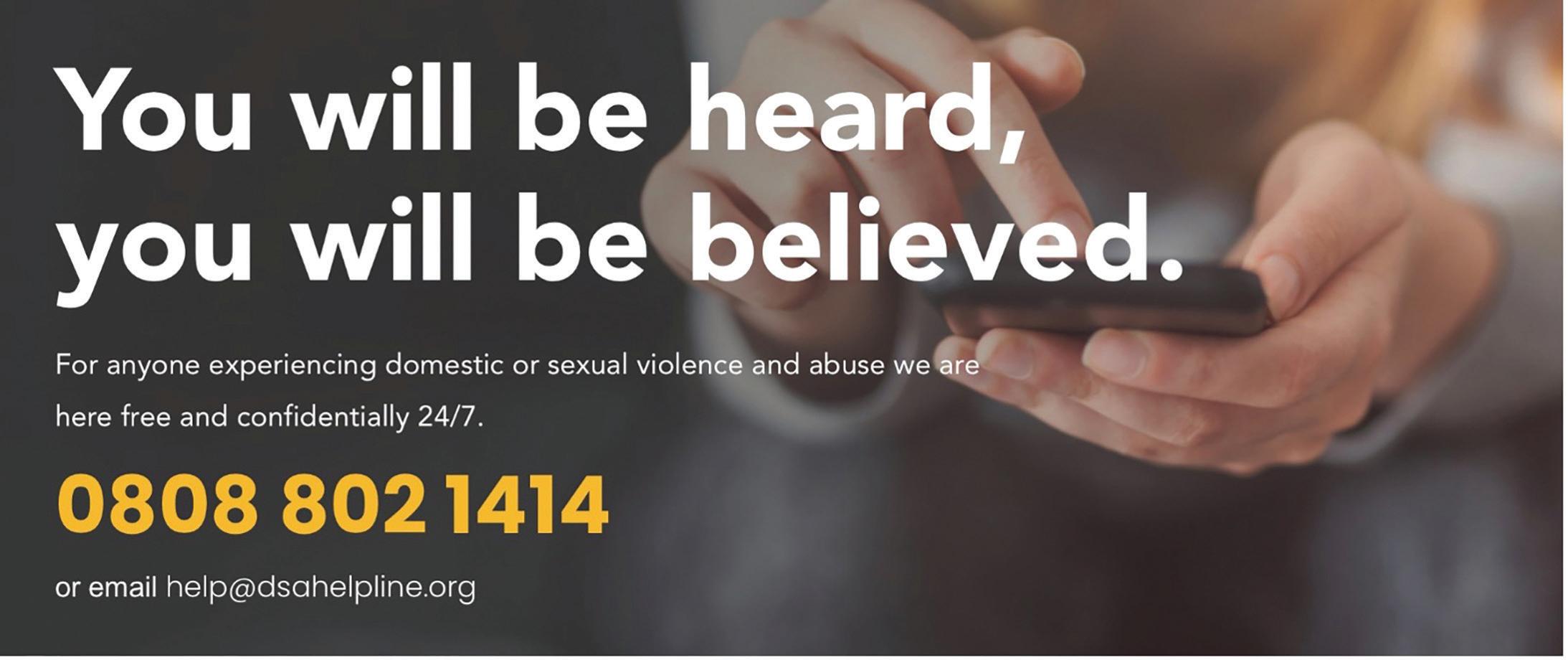
The Domestic and Sexual Abuse Helpline
The Domestic and Sexual Abuse Helpline provides information, advice and support to those impacted by domestic and sexual abuse across Northern Ireland.
The helpline is available to people with lived experience, those concerned about someone, those with concerns as to whether abuse is occurring and to professionals working with people who may be impacted by abuse.
The helpline will direct callers to the appropriate support in both emergency and non-emergency situations.
If you feel you need immediate support in addition to making a referral to join Nexus counselling we encourage you to contact the helpline.
Nexus manages the domestic and sexual abuse helpline, delivered in partnership with the Department for Communities (DfC), DoH and DoJ.
You can contact the helpline at any time, free and confidentially. Trained, experienced staff are available to available to help via phone, email and webchat.
T. 0808 802 1414 E. help@dsahelpline.org or Live Chat Via: dsahelpline.org

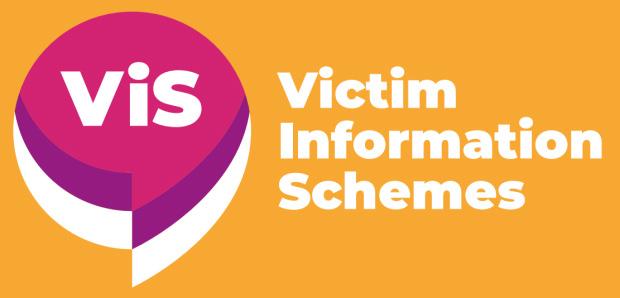
Victim Information Scheme – Probation NI
There are three information schemes in place to assist victims of crime. They are managed by Probation’s Victim Information Unit. The main purpose is to provide victims with information about the Criminal Justice System and key stages relating to sentence of the person who has offended in an accessible and easy to understand manner.
• Probation Victim Information Scheme;
• Prisoner Release Victim Information Scheme (PRVIS);
• Mentally Disordered Victim Scheme.
For more information visit PBNI’s website.
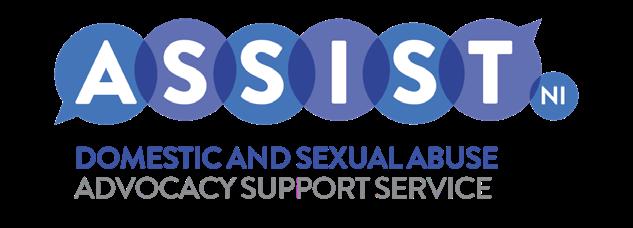
ASSIST NI – Domestic and Sexual Abuse Advocacy Service
The advocacy service provides support, information and a single point of contact for victims of domestic and sexual abuse who are negating in the Criminal Justice process. Referrals to this service can be made by:
• PSNI;
• Rowan Sexual Assault Referral Centre;
• Action from a Multi-Agency Risk Assessment Conference meeting (MARAC).
For more information visit ASSIST NI’s website.


“The most dangerous time for a victim is when they try to leave, so please reach out for support and get the help you need to do so safely.”
Support Services
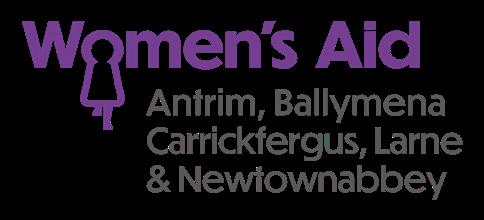
Women’s Aid ABCLN
Support, advocacy, and refuge for women and children affected by domestic violence.
T. 028 2563 2136
www.womens-aid.org.uk
For more information visit Women’s Aid ABCLN’s website.

Domestic and Sexual Abuse Helpline
Support, advice and guidance for anyone experiencing Domestic or Sexual Abuse.
T. 0808 802 1414
www.dsahelpline.org
For more information visit DSA’s website.

Men’s Advisory Project (MAPNI)
Support for male victims of domestic violence and abuse.
T. Belfast: 028 9024 1929 or Foyle: 028 7116 0001
www.mapni.co.uk
For more information visit MAPNI’s website.
Police Service of Northern Ireland (PSNI)
Call 999 in an Emergency or 101 in nonemergency when you need assistance or advice.
www.psni.PSNI.uk/safety-and-support/ keeping-safe/domestic-abuse
For more information visit PSNI’s website.
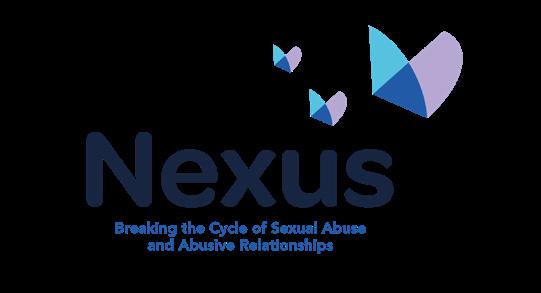
NEXUS
Nexus provides specialist therapeutic support, training, and advocacy for anyone impacted by sexual abuse or abusive relationships across Northern Ireland.
T. 028 9032 6803
www.nexusni.org
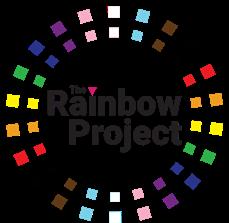
The Rainbow Project
Provides advocacy services for lesbian, gay or transgender people who may be experiencing domestic violence or abuse.
T. 028 9031 9030
www.rainbow-project.org
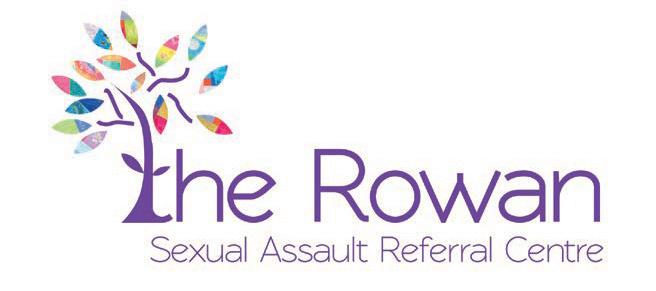
The Rowan (Sexual Assault Referral Centre)
Comprehensive support for survivors of sexual assault or rape.
T. 0800 389 4424
www.therowan.hscni.net
For more information visit The Rowan’s website.

Victim Support Northern Ireland
Victim Support NI is an independent charity which helps people affected by crime.
T. 028 9024 3133
www.victimsupportni.com
For more information visit the Nexus website. For more information visit Victim Support NI’s website.
For more information visit The Rainbow Project’s website.
Additional Resources
Victim of Crime Leaflet, DoJ
Scams and Fraud
Victim of Crime Leaflet, DoJ
(Multiple Languages)
PSNI Domestic Abuse Support
Sextortion
Sexual Violence and Abuse
Extern Mental Health and Suicide
Hate Crime
Protecting Your Home
Victim Support
ZCard All Trust Areas
Raising Awareness And Preventing Abuse in Communities
Education and Outreach
• Offer educational workshops in schools, workplaces and community centres on healthy relationships, consent and respect.
• Promote local helplines and support services in public spaces and online.
• Raise awareness about the impact of domestic and sexual abuse through campaigns, leaflets and social media.
Community Support
• Foster an environment where community members feel empowered to speak up if they notice signs of abuse in others.
• Encourage people to create safe spaces and support networks for survivors within communities.
Training for Community Leaders
Organise training sessions for community leaders, including faith leaders, teachers and social workers, on recognising signs of abuse and how to respond appropriately.
Develop partnerships with local services to ensure that referrals are handled effectively.

Conclusion
Domestic and sexual abuse are serious issues that impact many people in Northern Ireland. By recognising the signs of abuse, responding appropriately and referring individuals to the correct support services, communities can play a critical role in offering survivors the help and protection they need. It is important to maintain an approach that is empathetic, non-judgmental and centred on empowering individuals to make their own choices.
This toolkit serves as a resource to help create a supportive environment, ensure the safety of survivors and ultimately work towards the prevention of domestic and sexual abuse in our communities.
This community toolkit was created as a partnership project between Antrim and Newtownabbey PCSP and Antrim and Newtownabbey PSNI.
T. 028 9034 0000 E. pcsp@antrimandnewtownabbey.gov.uk antrimandnewtownabbey.gov.uk
